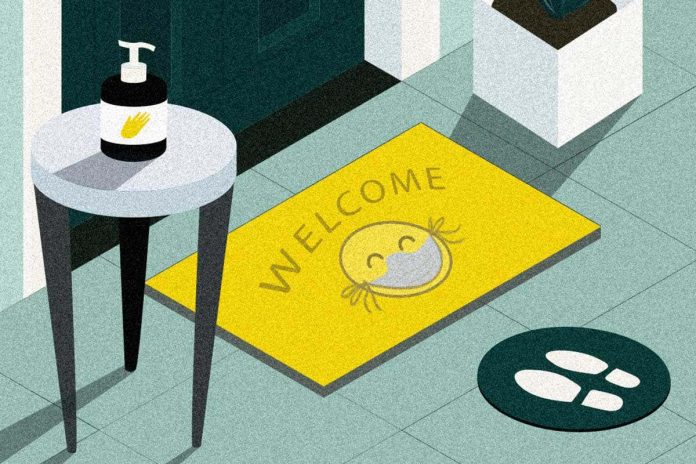If you plan to meet people over the festive season, there are many ways you can reduce the risk of spreading coronavirus, says Clare Wilson
Health
| Comment
2 December 2020

THE question of how to safely celebrate the holiday season this year is currently occupying a lot of people’s minds. In the UK, up to three households will be able to meet indoors at private homes for five days over Christmas in most of the country, and for seven days in Northern Ireland.
The news sparked widespread cheer, but some scientists have warned against the “Christmas truce”, predicting it will lead to a surge in coronavirus infections. So what can people do to reduce their risks?
The UK isn’t the only country where people are pondering this question. France and Germany have just announced similar loosening of restrictions, although the details differ, showing that the science is unclear on the right approach. People in the US, where Thanksgiving fell on 26 November, have already been wrestling with the same dilemma.
Advertisement
Some people – such as Anthony Fauci, director of the US National Institute of Allergy and Infectious Diseases – believe it isn’t worth the risk to meet with other households even when it is legally allowed. Studies of how the virus spread in January and February suggest that the biggest risk comes from indoor gatherings, especially ones involving drinking alcohol and eating.
For those set on face-to-face meet-ups, remember they don’t have to be all or nothing. It may sound obvious, but it is well worth ploughing on with the same hygiene measures that have been advised from the start, like handwashing and keeping your distance from people.
It isn’t easy to do so in winter, but opening windows and doors as much as possible would increase the chances of virus particles drifting away on air currents. And sorry to sound puritanical about it, but hugging and kissing anyone not in your household should be a no-no.
There are also preventive measures to consider beforehand. In Germany, it looks like people will be advised to self-isolate for several days before mixing with other households. But that isn’t possible for everyone, including those who work outside the home or go to school. In the UK, there are calls for schools to switch to online lessons for the last two weeks of term. And it isn’t in any official advice, but if I were planning to visit more than one household in separate outings, I would schedule my trips to see anyone more vulnerable first of all, to lower the risk of bringing the virus into their house.
Another option is to have coronavirus tests, but these aren’t the get-out clause that might be imagined. In the UK, they are generally available through the National Health Service only for people with covid-19 symptoms. When bought privately, a test can cost over £100. Unfortunately, they also come with a risk of false negatives: telling someone they don’t have the virus when they really do. One estimate from June placed the rate of false negatives at more than 1 in 5. So while a positive test result means you should have a Home Alone Christmas, it would be unwise to see a negative result as licence to act as if you are virus-free.
It may seem Grinch-like to have to consider these issues when the media is currently abuzz with excitement about the possible festivities. But I’m getting more excited about the prospects that vulnerable people may soon start to be vaccinated.
While many unknowns remain about the potential vaccines, it seems likely that, if we can just get through the next few months, family get-togethers will soon look a lot more normal. I’m saving up my hugs and kisses for Easter.
More on these topics:











